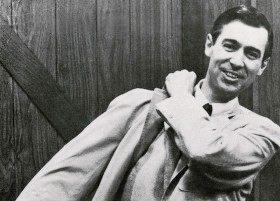
I couldn’t deal with his face. I just didn’t want to look at it. He had that smile of extreme simplicity that you see in people who have gone through tremendous sorrows, or in the mentally impaired at Mass. It’s a radical openness, a lantern that burns too bright.
I was always attracted to those sorts of faces, myself, although they are few and far between. My mother has this story about how I was fascinated by seeing JPII on the TV during his papal visit to Canada (1984, I was 3). According to her, I told her that “I love that man because he loves me.”
As kingfishers catch fire, dragonflies draw flame;
As tumbled over rim in roundy wells
Stones ring; like each tucked string tells, each hung bell’s
Bow swung finds tongue to fling out broad its name;
Each mortal thing does one thing and the same:
Deals out that being indoors each one dwells;
Selves — goes itself; myself it speaks and spells,
Crying Whát I dó is me: for that I came.I say móre: the just man justices;
Keeps grace: thát keeps all his goings graces;
Acts in God’s eye what in God’s eye he is —
Chríst — for Christ plays in ten thousand places,
Lovely in limbs, and lovely in eyes not his
To the Father through the features of men’s faces.
The more we are ourselves, the more we keep “all [our] goings graces,” the more the love of Christ is revealed “to the Father” through us.
Light calls to light–and maybe that is the real challenge that shines through the gaze of Fred Rogers and the frightening warmth of too-open faces. If we step into that light, what will be stripped away? What will we see, when we take our place within the circle of the Father’s love?
Who might we become?












